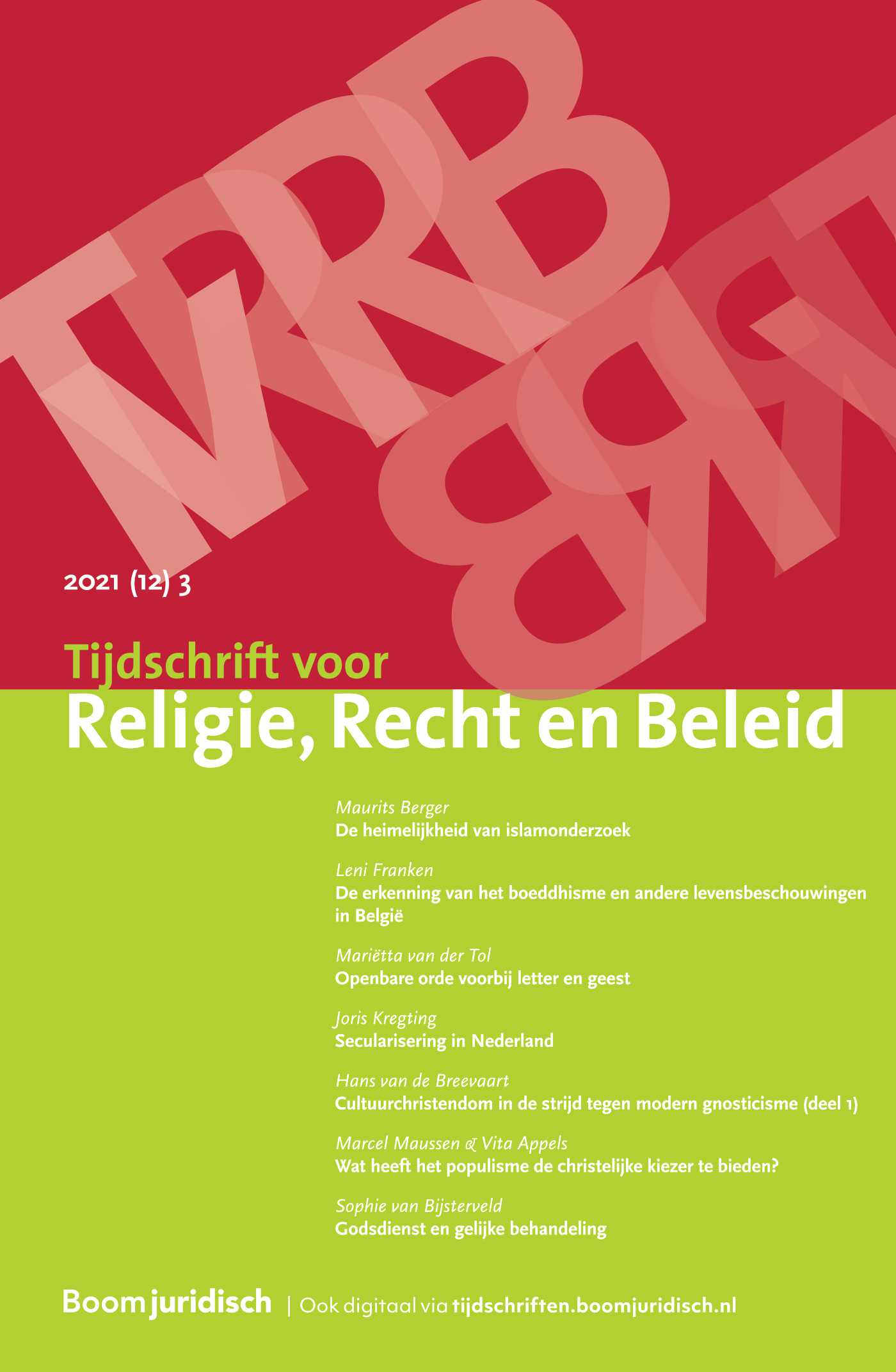|
This article compares the situation of religious education in the Dutch and German school systems against the background of the relationship between church and state. In the Netherlands most schools are confessional schools, whereas in Germany most schools are public schools. The way in which the school subject of religious education is taught differs in its form. In both countries difficulties arise in relation to religious education which leads to the future of the Dutch school system of public and confessional private schooling being disputed and in Germany the school subject of confessional religious education being under pressure. Despite laws concerning religion and education the theme of religious education is still debated in the public domain. |


Tijdschrift voor Religie, Recht en Beleid
Meer op het gebied van Algemeen
Over dit tijdschriftMeld u zich hier aan voor de attendering op dit tijdschrift zodat u direct een mail ontvangt als er een nieuw digitaal nummer is verschenen en u de artikelen online kunt lezen.
| Diversen |
|
| Auteurs | Sophie van Bijsterveld |
| Auteursinformatie |
| Artikel |
|
| Trefwoorden | godsdienstonderwijs, confessioneel bijzonder onderwijs, openbaar onderwijs, schoolsysteem Nederland-Duitsland |
| Auteurs | Kim de Wildt en Rob Plum |
| SamenvattingAuteursinformatie |
| Artikel |
|
| Auteurs | Aernout Nieuwenhuis |
| SamenvattingAuteursinformatie |
|
On the one hand, the religiously motivated circumcision of male minors is a manifestation of the right to freedom of religion. On the other hand, circumcision is an interference with the right to physical integrity. This article makes an effort to explain the fundamental rights’ position of male minor circumcision, dealing as well with the right to freedom of religion of the male minor, with some medical aspects, and with the difference between the circumcision of boys and girls. The article results in a discussion of the question, if specific regulation is required, in view of the recent discussion about the legitimacy of circumcision of male minors. |
| Artikel |
|
| Trefwoorden | animal welfare, slaughter without stunning, kosjer, halal |
| Auteurs | Janine Janssen |
| SamenvattingAuteursinformatie |
|
In 2008 the Party for the Animals in Dutch Parliament submitted a bill on the slaughter of animals without stunning. Initially this bill was formulated as a ban of slaughter without stunning. But then an amendment was included with the clause that this form of slaughter was allowed, provided it can be proven that animal welfare is not more affected than in regular slaughter. This would result in a de facto prohibition. Although the House of Representatives (Tweede Kamer) voted in favor of this bill, it was rejected by the Senate (Eerste Kamer), much to the relief of the Jewish and Muslim communities in the Netherlands. Jews and Muslims must meet with several rules according to their faith while slaughtering animals. One of these rules is that animals are killed without prior stunning. This contribution focuses on arguments regarding animal welfare against and religious arguments for slaughter without stunning. |
| Artikel |
|
| Trefwoorden | armoede, barmhartigheid, diaconaat, sociale bijstand |
| Auteurs | Jurn P. de Vries |
| SamenvattingAuteursinformatie |
|
Government and church both have to practice mercy, but there is a difference in the way they can do this. That is explained proceeding from theological ethics. The social care of the government cannot relieve every need, because it has to act conform the principles of good governance. Therefore particular charity and social assistance of the church stay necessary. |

 Aflevering 3
Aflevering 3